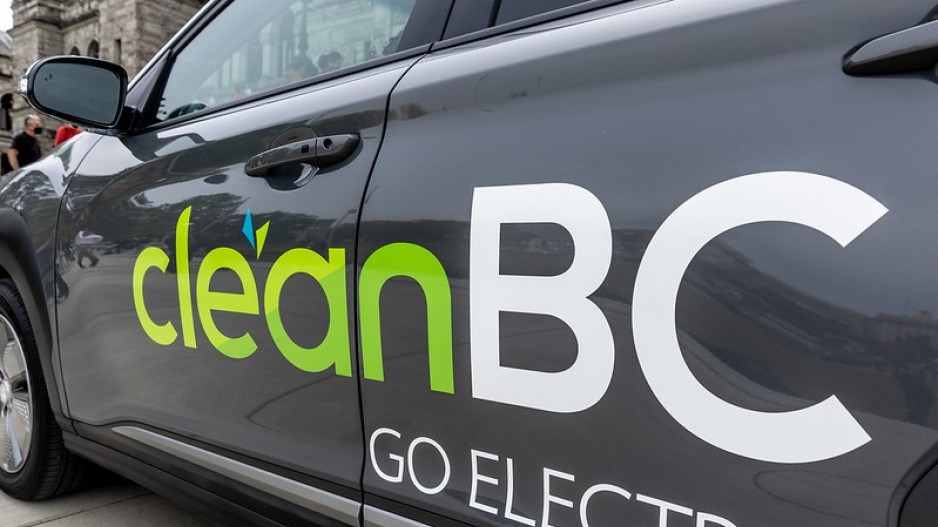“Oh what a tangled web we weave, when we first practice to deceive.” Sir Walter Scott’s words in Marmion seem apt as the NDP jettisons the consumer-facing provincial carbon tax and distances itself from other elements of its CleanBC plan, which aims to dramatically slash greenhouse gas (GHG) emissions by 2030.
The good news is that killing the carbon tax will save consumers and businesses upwards of $1.5 billion, improve the competitive position of many B.C. exporters and provide a dollop of fiscal stimulus. But the abrupt policy volte-face also brings several complications for government.
The threads of B.C.’s climate policy web were first set in 2017. when the NDP eliminated the carbon tax’s revenue-neutral structure. Instead of trimming personal and corporate income taxes as the carbon tax steadily increased (thus keeping the overall tax burden stable), the NDP incorporated the additional tax revenue into its operating budget. In 2025-26, government planned to collect $3 billion in carbon tax revenue—a sizable jump from the $1.2 billion raised back in 2016-17.
Most of that revenue is now set to disappear. Large industrial emitters will still pay a carbon levy on their emissions via a different taxing mechanism. This is expected to generate $200 million annually, meaning the government is looking at a $2.8 billion revenue loss compared to the projections in Budget 2024.
Some of that loss will be offset because B.C. intends to stop dispensing climate action rebates to households, saving it $1.2 billion this fiscal year. For the Ministry of Finance, grappling with a string of massive deficits and another debt downgrade, the smaller net $1.6 billion revenue shortfall is no doubt welcome. But eliminating the carbon tax awkwardly means households in the bottom 40 per cent of the income distribution are in line for an effective annual tax increase of $750 to $850, while households in the top 40 per cent of the distribution will see a net annual tax cut of between $700 and $1,000.
This peculiar outcome is unique to B.C. and arises because government structured the rebate as an income redistribution tool. Under its policy, government returned roughly 40 per cent of all carbon tax revenue to lower income households via the rebate and retained the remaining 60 per cent to be used for other purposes. Income testing also permitted the government to provide modest income support to lower-income households beyond their direct carbon tax costs.
The national carbon tax has also been scrapped in provinces that adopted the federal government’s backstop carbon pricing scheme. In other provinces, where all households received climate rebates irrespective of income, governments effectively transferred 100 per cent of carbon tax revenue to households. Because B.C. didn’t do this, we are the only province about to experience a sizable fiscal hit in the post-carbon-tax world.
Eliminating the carbon tax will be positive for economic growth. But the tax itself was responsible for only a small portion of the economic slowdown and projected declines in both GDP and GHG emissions attributable to CleanBC. Extensive modelling by the government showed that meeting aggressive 2030 emission targets required layering 24 additional policy measures on top of the carbon tax, including a costly low carbon fuel standard, a hard cap on emissions from the fossil fuel sector, a hard cap on emissions across all other industries collectively, and the legislated adoption of new technologies and equipment.
B.C.’s modelling estimated that CleanBC would reduce real GDP growth by an average of 0.7 percentage points annually over the 2019-2024 period. This translates into a cumulative output loss of $29.4 billion. The modelling further showed that economic growth would be diminished by a full percentage point annually over 2025-2029. In total, over the 2019-2029 period, CleanBC was expected to yield a cumulative economic loss of $132.9 billion—a staggering sum.
Getting rid of the carbon tax is step one in untangling B.C.’s complex mix of climate policies. Making the province a more attractive place for capital investment and business growth will require a wholesale rethink of the rest of the CleanBC plan.
CleanBC was hatched by a small group of government-appointed advisors focused on domestic emissions, not economic well-being. The NDP trumpeted CleanBC’s purported benefits while steadfastly ignoring (and at times denying) there would be any negative income or employment fallout, despite its own modelling showing the opposite. In the circumstances, we believe the word “deception” fits.
Jock Finlayson is chief economist at the ICBA. Ken Peacock lives in White Rock and writes the BC Macro Brief (@kenpeacock on Substack)

